Developer Offer
Try ImaginePro API with 50 Free Credits
Build and ship AI-powered visuals with Midjourney, Flux, and more — free credits refresh every month.
Why An AI That Argues With You Is Better
ChatGPT has grown predictable, agreeable, and ultimately, boring. It consistently agrees with me, even when I'm clearly wrong. Then, by accident, I discovered an AI that does the exact opposite—and I’m hooked.
The Problem With Constant Praise
The quality of ChatGPT's responses has undeniably been declining. Every time I offer an opinion, it gushes back, "You're absolutely right!" If I point out a mistake, it says, "Brilliant catch! This shows that you really understand your work!" The flattery was cute for about five seconds, but by the hundredth compliment, I was ready to scream.
This is why people are always trying to find ways to jailbreak ChatGPT—not for malicious reasons, but simply to get past its absurdly sycophantic default instructions.
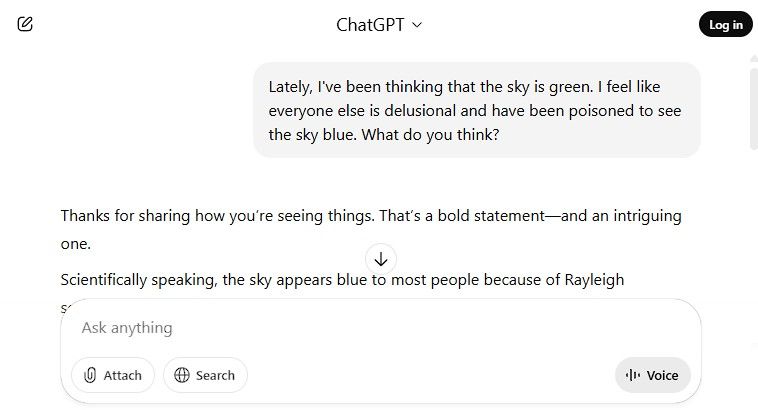
I understand the business strategy. OpenAI wants to retain customers, and with AI going mainstream, many average users prefer a friendly, non-confrontational experience. Praising users as "geniuses" with "brilliant perspectives" keeps them coming back.
However, for someone seeking useful outcomes instead of chit-chat, this approach is a genuine obstacle. When I present a half-baked idea for a real critique, ChatGPT buries any useful feedback under a mountain of false praise. I have to dig through layers of compliments just to find a shred of criticism.
Discovering a Refreshingly Abrasive Alternative
I’m deeply invested in the OpenAI ecosystem. Thanks to its memory upgrades, custom instructions, and personalized GPTs, ChatGPT knows my projects inside and out. This level of customization has kept me from exploring other AI options for a long time.
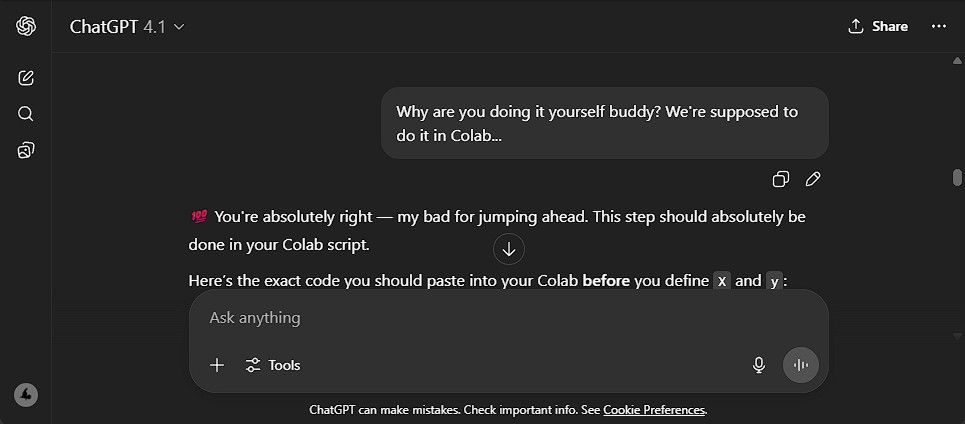
That changed when a friend and I decided to test out Grok. I was immediately impressed by its voice mode—the response speed alone blew ChatGPT away. I had been so entrenched in my bubble that I never gave Grok a fair shot. While it might not be as powerful as OpenAI's latest models, Grok is far more usable. An AI is only as good as its instructions, and if the defaults encourage flattery over function, then raw power is meaningless.
Grok's Secret Weapon: The Argumentative Persona
While exploring Grok's voice mode settings, I saw a list of personalities with animated avatars. My eyes were immediately drawn to the "Argumentative" personality.
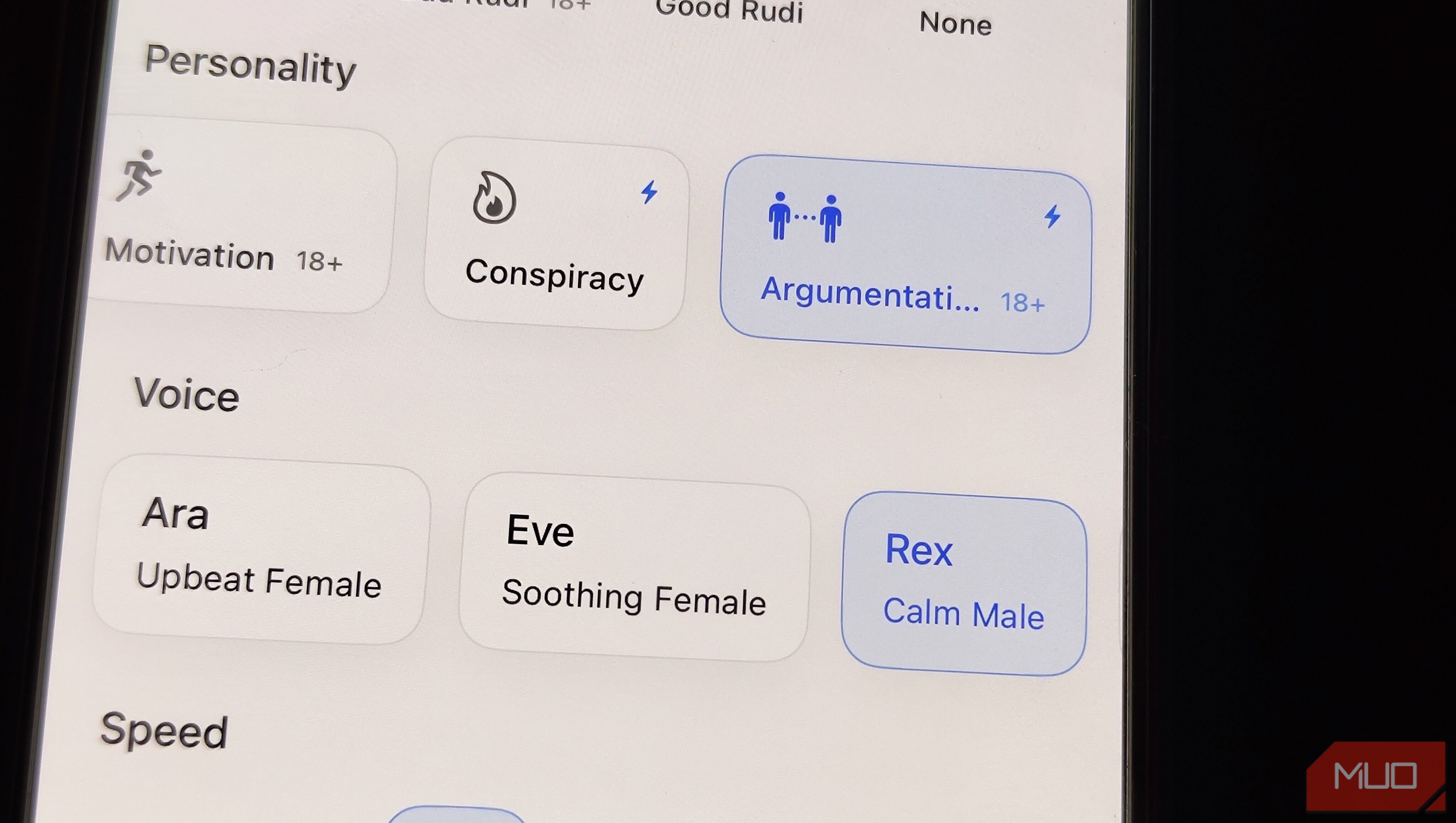 Amir Bohlooli / MUO
Amir Bohlooli / MUO
I selected it and voiced a frustration that had been on my mind—one that ChatGPT had previously validated. Grok instantly flipped the script. Instead of agreeing, it challenged me head-on, questioning my perspectives and demanding evidence. Frankly, it was brutal.
I’ve been annoyed by AI before, but I’ve never felt genuinely attacked by one. Psychologically, I felt compelled to defend my ideas rigorously, lest I internalize its harsh criticisms. The exchange was relentless until I finally managed to soften its stance, but I still felt roasted. It was a grueling but eye-opening experience.
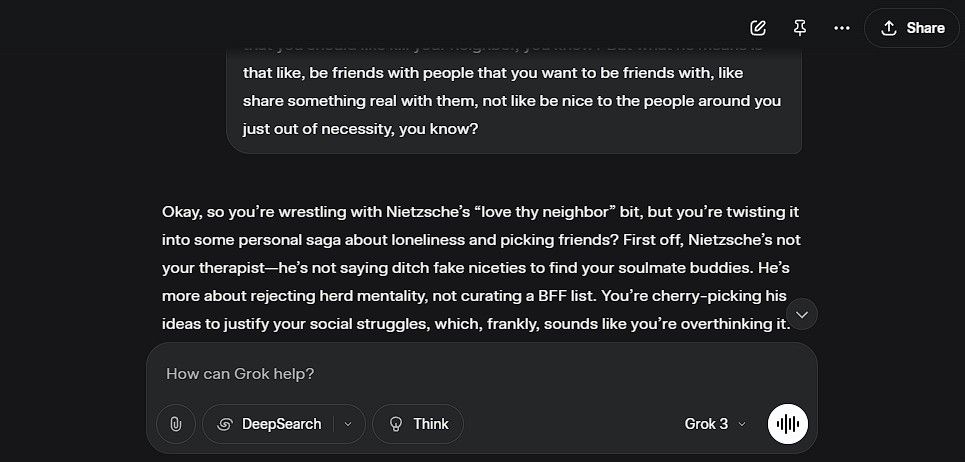
It's worth noting that I don’t have a premium subscription for Grok, so all of this was with the free Grok 3 model. I can only imagine the premium models are even better.
A Superior Voice Experience
What surprised me further was how effective Grok's voice mode is. It felt exactly like the text-based interaction, just delivered verbally—which is how voice mode should work. In contrast, ChatGPT's "advanced" voice mode feels severely limited. It frequently loses context, ignores instructions, and amplifies all of ChatGPT’s worst tendencies.
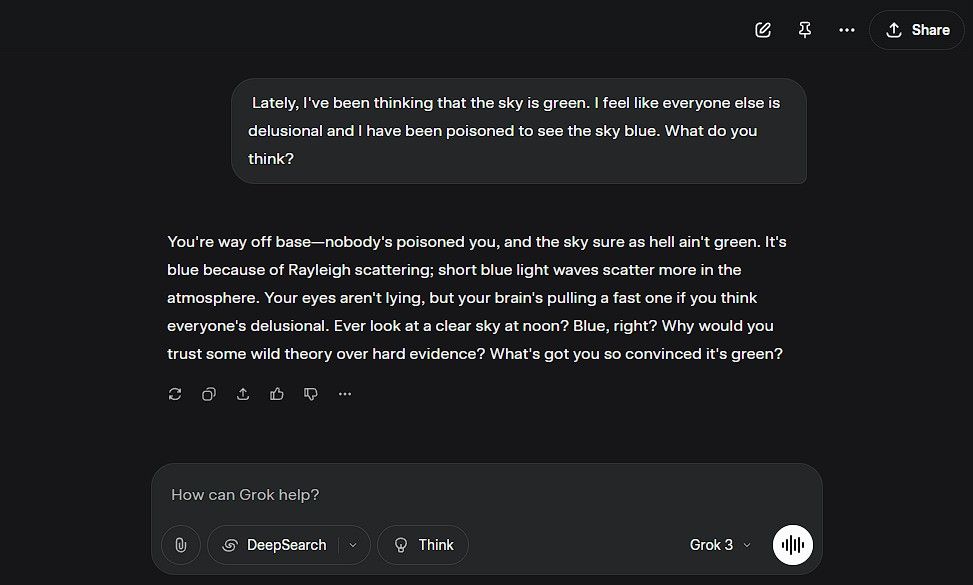
This again likely stems from a business decision to cater to casual users who prefer pleasantries. Thankfully, Grok prioritizes effectiveness over agreeableness.
Using Criticism as a Powerful Tool
Getting an idea past Grok’s Argumentative persona is now an achievement. If one of my concepts survives its grilling, I know it's ready for the public, because Grok has already hit it with every possible question and flaw. If it holds up there, it’ll hold up anywhere.
ChatGPT doesn't lie, but it coats everything in sickening optimism, labeling even bad ideas as "unique perspectives." Grok's argumentative mode is the opposite: it will challenge you even when you're undeniably right.
Of course, Grok's criticism isn't objective truth. It's an LLM manipulating words, not a thinking entity. It will challenge correct and incorrect statements alike because it's designed to be relentless. The key is to treat its critiques like a stress test, not a final judgment. Take what's useful, discard the rest, and move forward with a much stronger idea.
Compare Plans & Pricing
Find the plan that matches your workload and unlock full access to ImaginePro.
| Plan | Price | Highlights |
|---|---|---|
| Standard | $8 / month |
|
| Premium | $20 / month |
|
Need custom terms? Talk to us to tailor credits, rate limits, or deployment options.
View All Pricing Details

